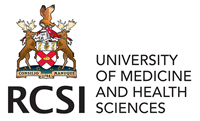About the Project
Cardiovascular disease (CVD) is the leading cause of mortality and morbidity worldwide. A common feature of CVD is vascular inflammation that in turn promotes blood clotting and thrombosis. Notably, innate immune cells such as macrophages and neutrophils have recently been identified to contribute to thrombotic disease development.
Every cell within the body has the ability to track time-of-day, and this system is termed ‘the molecular clock’. The molecular clock comprises a network of feedback loops which generate 24 hour rhythms in gene expression. In most tissues, clock driven gene expression peaks or troughs in “rush hours” anticipating dusk and dawn. Importantly, one gene, Bmal1 acts as the ‘master clock controller’ - Bmal1 deletion prevents cycling of all the other core clock proteins and ablates all circadian gene expression. Surprisingly, the clinical manifestation of CVD is intrinsically linked to the molecular clock and circadian rhythms – both heart attacks and strokes occur most commonly in the early morning hours and individuals subject to circadian disruption, such as shift-workers, have a significantly increased risk of CVD. Despite this, the biological basis for how circadian disruption drives thrombogenesis and vascular dysfunction remains completely unknown.
In preliminary studies, we have discovered that the macrophage molecular clock may act to modulate several facets of haemostasis to favour thrombosis, however, the mechanism(s) by which the molecular clock mediates these functions is poorly understood. In this project, we propose to fully characterise how different haemostatic processes are regulated by the molecular clock and assess their subsequent impact on blood clot formation and degradation using newly developed tools and techniques. To understand how the molecular clock impacts upon haemostatic gene expression, we will perform comprehensive expression analysis of blood coagulation and fibrinolysis genes using Bmal1+/+ versus Bmal1-/- macrophages to recapitulate macrophages with and without a molecular clock. In addition, we will utilise newly developed techniques to determine how macrophage stimulation of blood coagulation and clot dissolution isregulated by the macrophage molecular clock. Finally, we will consider whether tissue microenvironment modulates the extent to which the macrophage molecular clock contributes to thrombogenesis.
In summary, this project is anticipated to shed new light on the biological basis for circadian control of CVD development and provide a platform for the creation of novel therapeutic interventions to combat CVD in at-risk individuals. The project will be performed under the co-supervision of Dr. Roger Preston and Dr. Annie Curtis. The Preston lab (www.prestonlab.com) and the Curtis lab (www.curtisclocklab.com) are both large multidisciplinary research groups that are currently funded by prestigious awards from Science Foundation Ireland, Bayer Healthcare, Irish Research Council and the National Children’s Research Centre. Both have well-established expertise and an international reputation in haemostasis research and circadian immunology respectively and a strong publication record in this area (e.g. Gleeson et al Blood 2015, Gleeson et al JTH 2017, Sutton et al, Nature Comms 2017 and Early et al. PNAS, 2018).

 Continue with Facebook
Continue with Facebook

